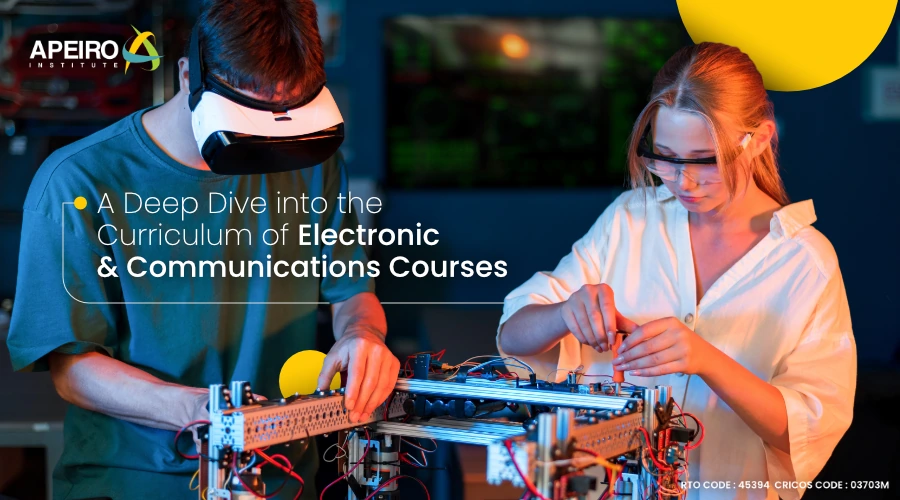Have you ever wondered what propels a vehicle forward? Ever been fascinated by the systems and features of vehicles? Then a career in automotive technology might be for you! In simple terms, automotive technology refers to the study of self-propelled vehicles or machines. Automotive technology students learn about engine construction, fuel and ignition systems, power trains, brakes, transmissions, electronic and diagnostic equipment, and much more.
The Diploma of Automotive Technology course equips individuals with skills needed to diagnose, analyze, evaluate, design, and modify vehicle systems in the automotive retail, service, and repair industry. This course will help individuals grow in the automotive industry and enable them to pursue further education.
Since the automotive industry is known for its adaptability to new trends and technology, workers must maintain a comprehensive and multifaceted skill set. While the needs of a specific employer may change every year, several characteristics are common to the employees.
- Technology/Automation
The job of computerization and information-driven activities is driving the way in bringing down functional expenses. Employees who know how to carry out and use the information are a resource for any manufacturing association that needs to bring down its expense and control squander.
- Leadership skills
Given the rapidly changing and ever-evolving nature of the automotive industry, organizations are looking for employees who can lead and be a good example for the group. An open-minded employee with a positive attitude and approach is constantly viewed as a resource inside a high-performing organization.
- Work ethics and professionalism
As with every profession, work ethics play a crucial role. Due to the formidable nature of the automotive industry, employees have different roles during the day, which they need to manage decisively. Automotive companies reward employees who love their work and are in lockstep with the organization’s creation, monetary, and security objectives.
- Confidentiality
Organizations are additionally watching out for employees who have a solid comprehension of work environment privacy. Since certain tasks in the automotive industry involve highly sensitive information, proprietary technology, or private data, employers want to make sure their employees can maintain company secrets.
- Problem-solving skills
Strong problem-solving skills are essential for every role. Great employees can handle the situations and come up with the best and less expensive solutions. Being able to address the doubts of the customers with genuine information is also crucial.
- Industry familiarity
Even if you don’t have first-hand knowledge in the automotive sector, industry-specific training or education can go a long way in instilling the basic fundamentals needed for many positions in the automotive industry.
Career opportunities
The study of automotive technologies can introduce you to several different careers, from diesel and collision repair to machine operator, mechanic, automotive technician, and much more.
- Vehicle detailer: A vehicle detailer is in charge of cleaning both the interior and exterior of an automobile.
- .
- Vehicle inspection: Vehicle inspectors are in charge of the safety standards of vehicles. They review the cars’ emission levels, safety measures, and other regulations.
- Auto sales manager: Auto sales managers are the sales leaders in dealerships. They forecast vehicle demand based on experience, manage inventory, and track vehicles sales team performance.
- Auto engineer: Auto engineers are among the major automobile professionals. They work with the development and design team to develop fuel-efficient, cost-effective and modern-day vehicles.
- Auto designer: They design attractive, functional, and aerodynamic parts on paper and or design software, assembling all the required electrical, mechanical, and other features into the design.
- Process designer: Process engineers work with plant personnel to understand recent changes in the automobile industry and incorporate them into the development of the plant to benefit the production line.
- Quality testing designer: They develop a test case, implement the test and provide solutions to any quality defects. Quality test engineers partner with other team members and they work towards having functional and beautiful automobiles.
Apart from these direct professions in the automotive industry, there are other vital indirect professions, including mass communication, account managers, and customer care representative professions. Suppose you are an avid car lover and want to learn how to perform a broad range of tasks on various light vehicles in the automotive retail, service, and repair industry. In that case, Apeiro Institute provides automotive courses with state-of-the-art in-house workshops.
To know more, visit: https://www.apeiro.edu.au/






